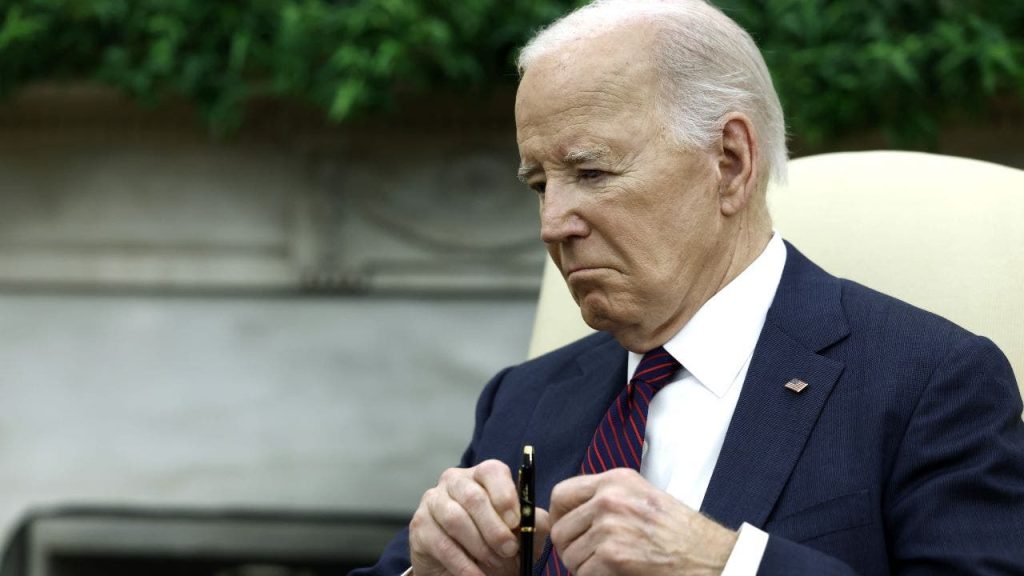President Biden did not directly address questions regarding Iran’s recent attacks against Israel during a press conference on Monday. The inquiry was posed by Fox News White House correspondent Peter Doocy as Biden was departing the presser with Iraqi Prime Minister Mohammed Shia al-Sudani. Doocy asked what the plan was, considering Biden had previously warned Iran against such actions. This warning had drawn criticism from Republicans who believed that simply telling Iran “Don’t” was not an effective deterrent strategy. Following the attacks, the White House has expressed support for Israel, with National Security Advisor Jake Sullivan and Secretary of Defense Lloyd Austin reiterating the United States’ commitment to Israel’s security in conversations with Israeli counterparts.
Biden’s warning to Iran had come on Friday, less than a day before the airstrikes occurred, stating simply, “Don’t.” This response was met with backlash from Republicans who felt that the administration’s handling of Iran was insufficient. Senator Lindsey Graham criticized Biden, saying that every time he tells bad guys “Don’t,” they end up doing it anyway. Senator Marsha Blackburn echoed this sentiment, highlighting how under President Trump, Iran was financially strained due to sanctions, but that Biden’s policies had now provided them with billions of dollars and a simple warning was ineffective. The lack of a clear foreign policy approach has raised concerns about how the current administration plans to address threats posed by Iran.
Despite the lack of a direct response from President Biden, the White House has shown support for Israel following the attacks. National Security Advisor Jake Sullivan and Secretary of Defense Lloyd Austin both reassured Israeli counterparts of the United States’ unwavering commitment to Israel’s defense. Sullivan reiterated the ironclad commitment to Israel’s security, while Austin expressed support amid threats from Iran and its regional proxies. The White House’s response has aimed to convey solidarity with Israel and reinforce the alliance between the two countries during times of heightened tensions in the region.
In the days following the attacks, the Biden administration’s approach to addressing the situation in the Middle East has become a subject of scrutiny. The lack of a clear strategy in dealing with Iran’s aggression has led to criticism from political opponents, who argue that telling Iran “Don’t” is not a sufficient deterrent. Republicans have pointed to the administration’s decision to provide Iran with financial resources as a contributing factor to the recent attacks on Israel. Moving forward, there are questions about how President Biden will navigate the complex dynamics in the region and what steps will be taken to ensure the security and stability of Israel in the face of ongoing threats posed by Iran and its allies.


